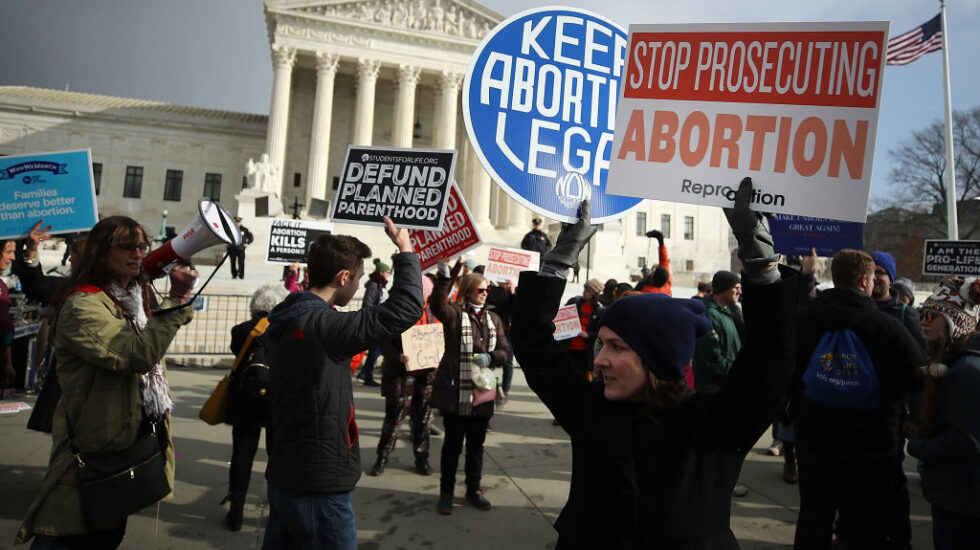On Monday, the Supreme Court decided not to hear an appeal of a Kentucky law that requires doctors to perform ultrasounds while also describing the fetal images to women seeking abortions. This legislation had been blocked by lower courts since Republican governor Matt Bevin signed it into law in 2017. Now that SCOTUS has refused to take up the appeal, the law will now go into effect.
From the Louisville Courier-Journal:
Kentucky’s 2017 ultrasound law marked the beginning of a wave of anti-abortion legislation that began after Republicans seized control of the Kentucky House, which continued through the 2019 legislative session with four major bills passed aimed at restricting or eliminating abortion in Kentucky. Some have been blocked by the courts.
The Courier-Journal also described the ruling as a win for Matt Bevin on his last day as Kentucky’s governor.
When the law was first enacted, the American Civil Liberties Union challenged it, arguing that this procedure violated doctors’ and patients’ First Amendment rights. U.S. District Judge David Hale struck down the legislation in 2017; he wrote that it “intended to dissuade women from choosing abortion by forcing ultrasound images, detailed descriptions of the fetus and the sounds of the fetal heartbeat on them, against their will, at a time when they are most vulnerable.”
Politico reports that Hale’s ruling was reversed by a three-judge panel of the 6th U.S. Circuit Court of Appeals earlier this year. Today, SCOTUS announced that it will not challenge this decision.
With its refusal to review the lower court decision, the Supreme Court “has rubber-stamped extreme political interference in the doctor-patient relationship,” said Alexa Kolbi-Molinas, a senior staff attorney at the ACLU Reproductive Freedom Project. “This law is not only unconstitutional, but as leading medical experts and ethicists explained, deeply unethical.”
Coming up in March, Justices will hear arguments for their first major abortion case in three years: a dispute in the legality of abortion restriction laws in Louisiana. The outcome of this case is expected to have major implications on abortion legislation nationwide.



